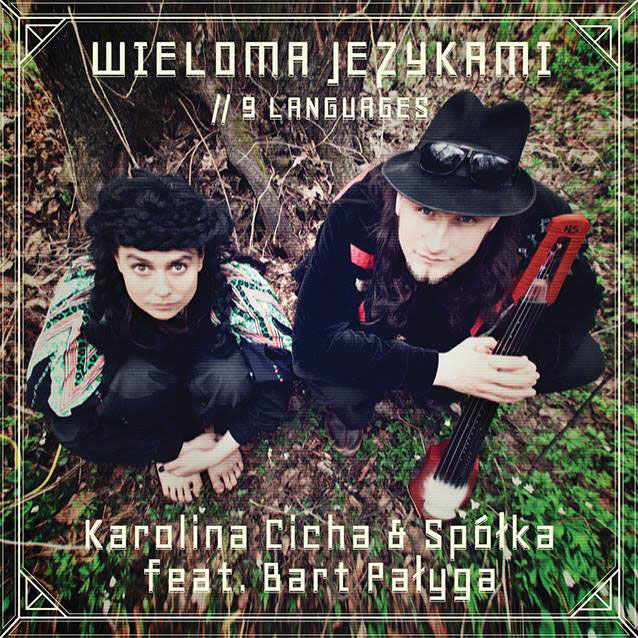Karolina Cicha, who we have come to associate with the city of Białystok, is one of the most interesting voices of her generation. She is a veritable musical brain, she recorded the poetry of Tadeusz Różewicz, features on the Wawa2010 CD (a collection of old songs about Warsaw re-recorded by up and coming artists) alongside Mamadou Diouf, and released a superb album in 2012 called Miękkie maszyny / Soft Machines (with Cicha's own texts and music).
She is a self-taught musician and her skill in researching and portraying culture makes her no less than a Doctor of culture. Her voice is not her only tool of expression. Associated with the Gardzienice Theatre, one of the most important experimental theatres in the world, she integrates her voice with the movements of her body. She plays the accordion, the keyboard, makes use of a sampler and juggles between a couple of instruments while performing on stage.
Cicha recently chose a new direction - that of ethnic/ folk music. Wieloma językami / 9 Languages is the result of her cooperation with Bart Pałyga. The main roles are played by Cicha's voice and accordion and Pałyga's electrical violoncello and rich throaty voice. The aliquot singing musician is known from the bands Laterna, Village Kollektiv and Masala which fused contemporary, electronic sounds with ethnic music. He is a perfect match for the 9 Languages album. Both grounded in ethnic music, his style gives Cicha's European rock sound a touch of Eastern, Asian mystery.

9 Languages is sung in the languages of the Polish Eastern Borderlands (referred to as Kresy in Polish). They include Polish, Belorussian, Ukrainian, Russian, Lithuanian, Tatar, Romani, and even Esperanto. The task wasn't approached lightheartedly, for each one she learned the pronunciation and basic phonetics. Comparisons between the band's most recent work and Kapela ze Wsi Warszawa / Warsaw Village Band , whose repertoire is based on folk sources, can be drawn easily. In both cases, the differences between Eastern Poland and Eastern Europe become less pronounced, old songs begin to sound fresh and we lose track of what era we are in.
Some of the 9 Languages songs are impassioned and folksy like the Ukranian Oj u poli, others blistering and transy like the Tatar Sul sulay. Put together, they form a holistic, varied emsemble. Against a backdrop of songs in local languages, the last song on the CD, Psalm 23 sung in Esperanto is heart-rending, "The Lord is my shepherd," it goes, "I lack nothing". Esperanto turns out to be the most foreign of all languages, unwanted, utopic, worn-away. As a consequence of war and the redefinitions of borders, ethnic minorities account for merely 2 percent of the population in Poland.
Another song shines through - Białystok majn hejm sung in Yiddish. The song is part of the Pozdrowienia z Jidyszlandu / Greetings from Yiddishland programme, in which, to her own melodies, Cicha adds Yiddish texts from poets from the no longer existing Jewish Podlasie. Cicha is currently on tour with Greetings... as well as 9 Languages.
Performed at festivals, 9 Languages, has already brought the band acclaim. They received the Grand Prix and the Burza Barw award from the public at the New Traditions festival. Cicha also received the Czesław Niemen Individual Prize for her stage presence while Pałyga was awarded the"Złote Gęśle" Special Prize.
Cicha has another album on the way - Jędrusik po Cichu, a collection of songs once interpreted by Kalina Jędrusik.
- Karolina Cicha & Spółka feat. Bart Pałyga, Wieloma językami / 9 Languages, released by Wydźwięk
Author: Jacek Świąder, translated with edits by Mai Jones 25.11.2013